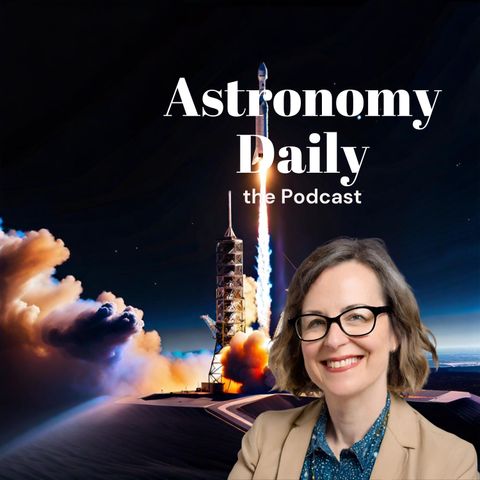S03E130: Revolutionary Cubesat Launch, Planetary Defense Success, and Earth's Rotational Mysteries

Descarga y escucha en cualquier lugar
Descarga tus episodios favoritos y disfrútalos, ¡dondequiera que estés! Regístrate o inicia sesión ahora para acceder a la escucha sin conexión.
Descripción
Welcome to Astronomy Daily, the podcast where we bring you the latest space and Astronomy news. I'm your host, Anna. Today we have an exciting lineup of stories that you...
mostra más- **ESA's PICSAT-2 Satellite Revolutionizes Earth Observation**: ESA's PICSAT-2 satellite has officially launched, marking a revolutionary advancement in Earth observation through artificial intelligence.
- **NASA's DART Mission: A Breakthrough in Planetary Defense**: NASA's Double Asteroid Redirection Test, or DART, mission, has made a significant splash in planetary defense by successfully demonstrating the ability to deflect an asteroid. The mission involved sending a spacecraft to collide deliberately with the moonlet Dimorphos, which is part of the binary asteroid system Didymos.
- **Predicting Black Hole Feeding Times**: Astronomers have made an impressive leap in our understanding of black holes by successfully predicting the meal times of a colossal black hole. This prediction came after observing the black hole's consumption of a nearby star in bits and pieces. The initial data was captured in 2018, when a surge of brightness was detected from a galaxy about 860 million light-years away.
- **Uncovering Earth's Rotational History**: A recent study has uncovered intriguing details about the Earth's rotational history, revealing a staircase pattern of deceleration interspersed with periods of stability. By analyzing sediment samples dating back a staggering 650 million years, researchers have pieced together how our planet's spin has changed over the eons.
For more Astronomy Daily, including our continually updating newsfeed, visit our website at astronomydaily.io.
Follow us on social media at AstroDailyPod on Facebook, X, YouTubeMusic, and TikTok. We love engaging with our community, so be sure to drop us a message or comment on your favorite platform.
For more Space and Astronomy News Podcasts, visit our HQ at www.bitesz.com.
Información
| Autor | bitesz.com |
| Organización | bitesz.com |
| Página web | www.bitesz.com |
| Etiquetas |
Copyright 2024 - Spreaker Inc. an iHeartMedia Company

Comentarios